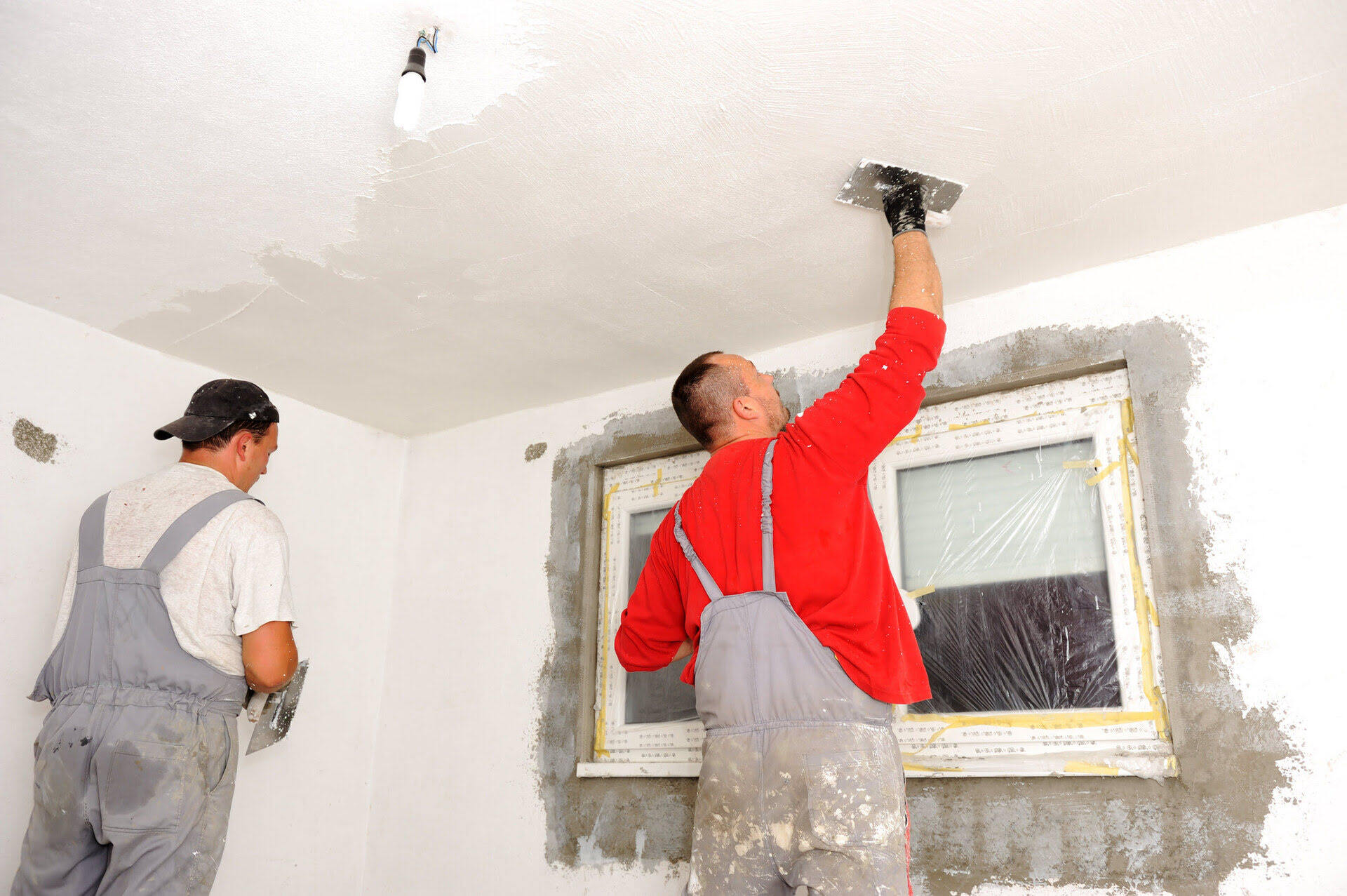Home>Renovation & DIY>Home Renovation Guides>In What Kind Of Remodelling Do We Need A City Permit


Home Renovation Guides
In What Kind Of Remodelling Do We Need A City Permit
Modified: January 8, 2024
Learn about the types of home renovations that require a city permit with our comprehensive home renovation guides. Ensure your remodeling project complies with local regulations.
(Many of the links in this article redirect to a specific reviewed product. Your purchase of these products through affiliate links helps to generate commission for Storables.com, at no extra cost. Learn more)
Introduction
Embarking on a home renovation project is an exciting endeavor that promises to breathe new life into your living space. Whether you're envisioning a sleek modern kitchen, a luxurious bathroom, or a cozy basement retreat, the prospect of transforming your home can be exhilarating. However, amidst the enthusiasm, it's crucial to navigate the regulatory landscape to ensure that your renovation complies with local building codes and regulations. This is where city permits come into play.
In the realm of home renovation, city permits are essential regulatory instruments designed to uphold safety standards and ensure that construction and remodelling projects meet specific requirements. Understanding the nuances of when a city permit is necessary can save you from potential legal and financial pitfalls down the road. In this comprehensive guide, we will delve into the intricacies of city permits for home remodelling, shedding light on the types of projects that typically require permits, exemptions from permit requirements, and the process of obtaining a city permit. By the end of this journey, you will be equipped with the knowledge needed to navigate the permitting process with confidence, empowering you to embark on your home renovation journey with clarity and peace of mind.
Key Takeaways:
- Always check if your home renovation project requires a city permit to comply with safety codes and regulations, especially for structural modifications, plumbing/electrical work, roofing/siding replacement, additions/expansions, and demolition/excavation.
- Minor cosmetic upgrades, repairs, non-structural alterations, and exterior landscaping are often exempt from city permit requirements, but always verify local regulations. Navigating the permit process diligently ensures compliance and safety for your home remodelling project.
Read more: How To Get A City Permit For Construction
Understanding City Permits
City permits, often referred to as building permits or construction permits, are official approvals granted by local government authorities to oversee and regulate construction, renovation, and remodelling activities within their jurisdiction. These permits serve as a mechanism to ensure that building projects comply with safety codes, zoning regulations, and other applicable laws. By obtaining a city permit, homeowners and contractors commit to adhering to established standards, thereby safeguarding the structural integrity and safety of the built environment.
When engaging in home remodelling projects, it is imperative to recognize that city permits serve as a means of oversight, enabling authorities to review proposed construction plans, inspect the work during various stages, and ultimately certify that the project meets prescribed standards upon completion. This process not only fosters compliance with building codes but also contributes to the overall well-being of the community by mitigating potential hazards and upholding structural integrity.
Furthermore, city permits provide a layer of protection for homeowners, offering assurance that the work being carried out has been scrutinized and approved by regulatory authorities. This can be particularly valuable when selling a property, as prospective buyers may seek confirmation that any renovations were conducted in accordance with applicable regulations.
By comprehending the significance of city permits in the realm of home remodelling, homeowners can approach their renovation projects with a heightened awareness of the regulatory framework governing construction activities. This understanding forms the bedrock for informed decision-making and ensures that renovations are executed in a manner that prioritizes safety, compliance, and long-term value.
Types of Remodelling Requiring City Permits
When contemplating home remodelling projects, it’s crucial to discern the types of renovations that typically mandate obtaining a city permit. While specific regulations vary by locality, certain common alterations generally necessitate securing a permit to ensure compliance with building codes and safety standards. Here are the primary types of remodelling that often require a city permit:
- Structural Modifications: Any modifications that impact the structural integrity of a building, such as removing or adding walls, altering load-bearing elements, or making substantial changes to the building’s foundation, typically require a city permit. These alterations directly influence the stability and safety of the structure, warranting thorough oversight.
- Plumbing and Electrical Work: Projects involving significant alterations to plumbing or electrical systems, including installing new fixtures, rewiring, or rerouting plumbing lines, generally necessitate permits. Given the potential risks associated with faulty electrical or plumbing installations, regulatory authorities mandate permits to ensure that the work complies with safety standards.
- Roofing and Siding Replacement: Replacing roofing materials or siding often falls under permit requirements, as these components contribute to the building’s weatherproofing and structural integrity. Permitting authorities may assess the materials being used and the installation methods to ascertain compliance with building codes.
- Additions and Expansions: Any additions to the existing structure, such as building new rooms, expanding the footprint of the property, or constructing additional stories, typically demand city permits. These alterations impact the overall size and layout of the building, necessitating regulatory scrutiny to ensure adherence to zoning regulations and safety standards.
- Demolition and Excavation: Projects involving demolition, excavation, or significant land grading often require permits to mitigate potential environmental and safety hazards. Regulatory oversight ensures that these activities are conducted in a manner that safeguards surrounding properties and infrastructure.
Understanding the specific types of remodelling that typically require city permits empowers homeowners to proactively engage with the regulatory process, fostering compliance and safety throughout the renovation journey. By recognizing the pivotal role of permits in these scenarios, individuals can embark on their remodelling projects with a clear understanding of the regulatory expectations, thereby laying the groundwork for a successful and compliant renovation experience.
Before starting any remodelling project, check with your local city government to see if a permit is required. Permits are often needed for structural changes, electrical work, plumbing, and additions to the property. It’s important to follow the rules to avoid fines or having to undo the work.
Exemptions from City Permits
While many home remodelling projects necessitate obtaining a city permit to ensure compliance with building codes and regulations, certain minor alterations and maintenance activities are often exempt from permit requirements. These exemptions aim to streamline the renovation process for routine tasks that pose minimal risk to the structural integrity and safety of the property. It’s important for homeowners to be aware of these exemptions, as they can facilitate the efficient execution of small-scale improvements without the administrative burden of obtaining permits. Here are some common exemptions from city permit requirements:
- Cosmetic Upgrades: Cosmetic enhancements such as painting walls, replacing flooring, and installing new cabinetry or countertops typically fall under exemptions from permit requirements. These aesthetic improvements do not alter the structural or safety aspects of the building, making them exempt from the permitting process.
- Minor Repairs: Minor repairs, such as fixing leaky faucets, repairing minor drywall damage, or replacing individual shingles on a roof, are often exempt from permit requirements. These maintenance activities are considered routine upkeep and do not significantly impact the building’s structural integrity.
- Non-Structural Alterations: Certain non-structural alterations, such as replacing windows and doors without modifying the structural openings, may be exempt from permit requirements. As long as these replacements do not impact the building’s load-bearing elements or compromise safety, they often fall within the exemption criteria.
- Exterior Landscaping: Landscaping activities, including planting trees, shrubs, and flowers, as well as installing decorative hardscaping elements like pathways and garden structures, are typically exempt from city permit requirements. These enhancements focus on the outdoor aesthetics of the property and are generally considered outside the scope of permit regulations.
It’s important to note that exemption criteria can vary by location, and local building authorities may have specific guidelines delineating the scope of exempted activities. While these exemptions offer flexibility for minor home improvements, homeowners should always verify the local regulations to ensure compliance with applicable laws. Additionally, even when an activity is exempt from permit requirements, it must still adhere to relevant building codes and standards to uphold the safety and quality of the renovation work.
By understanding the exemptions from city permit requirements, homeowners can navigate the remodelling process with clarity, knowing which activities can be undertaken without the need for formal permitting. This knowledge empowers individuals to efficiently execute minor improvements while maintaining a steadfast commitment to compliance and safety.
Obtaining a City Permit
Securing a city permit for your home remodelling project involves navigating a structured process designed to ensure that the proposed renovations align with building codes and regulatory standards. While the specific steps and requirements may vary by locality, the following overview provides a general understanding of the process involved in obtaining a city permit:
- Evaluate Permit Requirements: Begin by identifying the scope of your remodelling project and determining whether it falls under the purview of permit regulations. Understanding the specific types of alterations that necessitate a permit is crucial for initiating the permitting process on the right footing.
- Prepare Documentation: Compile the necessary documentation for your permit application, which may include detailed construction plans, structural drawings, engineering reports, and other pertinent information outlining the proposed renovations. These documents serve as the blueprint for regulatory authorities to assess the project’s compliance with building codes.
- Submit Permit Application: Complete the permit application form provided by the local building department, ensuring that all required information is accurately provided. Alongside the application, submit the compiled documentation and any additional materials specified by the permitting authority.
- Review and Approval Process: Upon receiving the permit application, the regulatory authorities will review the proposed renovations to verify compliance with building codes, zoning regulations, and safety standards. This review process may involve multiple stages of assessment, including structural evaluations and inspections.
- Address Feedback and Modifications: If the permit application encounters feedback or requests for modifications from the regulatory authorities, promptly address and incorporate the required changes into the proposed plans. Open communication and collaboration with the permitting officials can expedite the approval process.
- Obtain Permit and Commence Work: Upon successful review and approval, the regulatory authorities will issue the city permit for your remodelling project. It is imperative to prominently display the permit at the construction site, as it serves as official authorization to commence the approved renovations.
- Adhere to Permit Conditions: Throughout the remodelling process, ensure strict adherence to the conditions outlined in the city permit. This includes facilitating scheduled inspections, complying with approved construction plans, and maintaining transparency with regulatory authorities regarding the progress of the renovations.
- Final Inspection and Certification: Upon completion of the renovations, the regulatory authorities will conduct a final inspection to verify that the work aligns with the approved plans and complies with building codes. Successful clearance from the final inspection culminates in the issuance of a certification, affirming the compliance and safety of the remodelling project.
By navigating the process of obtaining a city permit with diligence and adherence to regulatory requirements, homeowners can embark on their remodelling endeavors with the confidence that their renovations are conducted in compliance with building codes and safety standards. This commitment to regulatory adherence ensures the long-term integrity and value of the property, underpinning the success of the renovation project.
Conclusion
Embarking on a home remodelling journey is a transformative experience that holds the promise of revitalizing your living space and enhancing the comfort and functionality of your home. However, amid the excitement of envisioning your dream renovations, it is paramount to navigate the regulatory landscape with a keen understanding of city permits and their role in ensuring compliance with building codes and safety standards.
By comprehending the nuances of city permits for home remodelling, homeowners are empowered to make informed decisions and embark on their renovation projects with clarity and confidence. Understanding the types of renovations that typically require permits, as well as the exemptions from permit requirements, enables individuals to proactively engage with the regulatory process, fostering compliance and safety throughout the renovation journey.
Securing a city permit involves a structured process of documentation, review, and approval, culminating in official authorization to commence and execute the approved renovations. This process, while involving administrative steps, serves as a safeguard for the structural integrity and safety of the built environment, offering assurance to homeowners and regulatory authorities alike.
As you set forth on your home remodelling odyssey, may this guide serve as a beacon of knowledge, illuminating the path to a successful and compliant renovation experience. By embracing the regulatory framework with diligence and foresight, your renovations will not only reflect your vision and style but also stand as a testament to the commitment to safety, quality, and regulatory adherence.
With a city permit as your compass, may your home transformation unfold seamlessly, culminating in a space that embodies your aspirations and enriches your everyday life.
Frequently Asked Questions about In What Kind Of Remodelling Do We Need A City Permit
Was this page helpful?
At Storables.com, we guarantee accurate and reliable information. Our content, validated by Expert Board Contributors, is crafted following stringent Editorial Policies. We're committed to providing you with well-researched, expert-backed insights for all your informational needs.















0 thoughts on “In What Kind Of Remodelling Do We Need A City Permit”